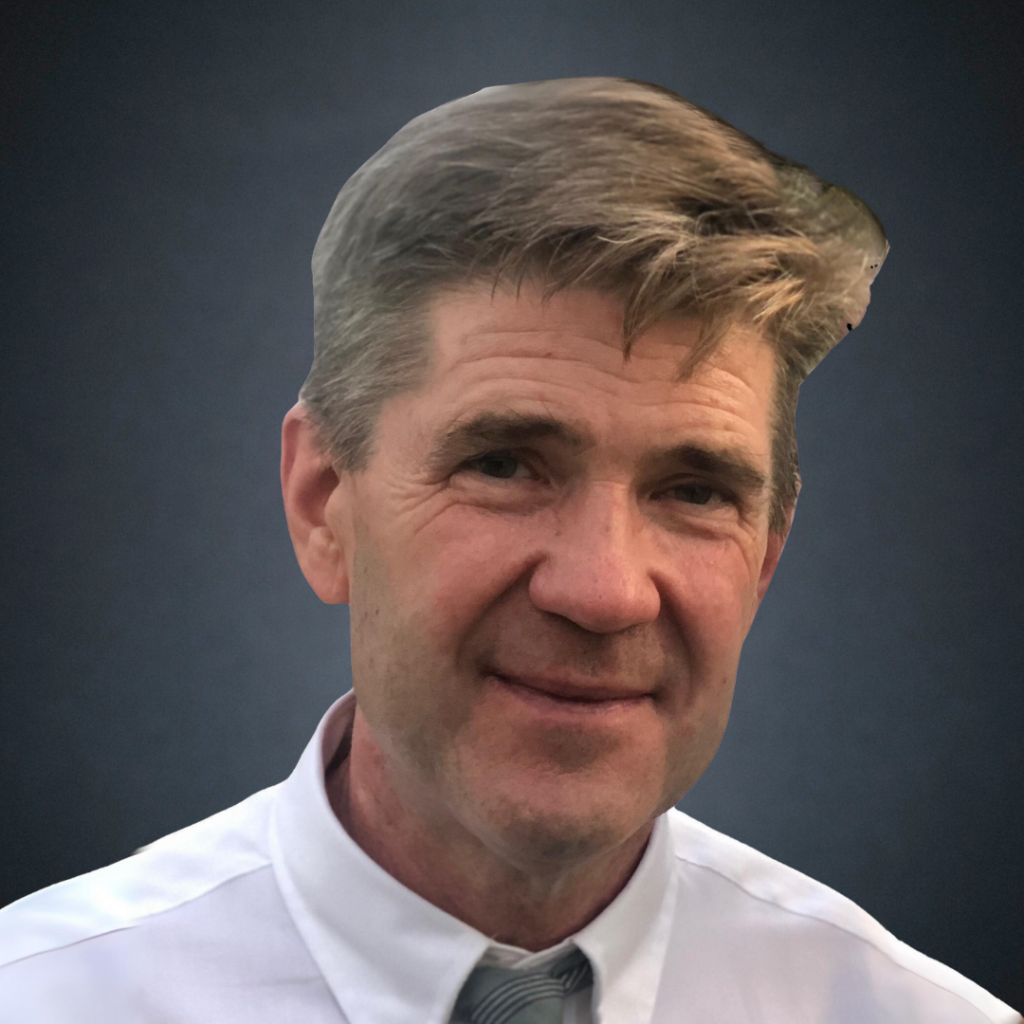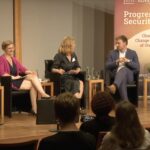Author: John Austin
Residents of regions in long-term economic decline are understandably angry and upset about diminished prospects for themselves and their families and the degraded condition of their communities. In order to turn residents’ outlook from frustration, resentment and distrust of leaders and institutions to hope, optimism and confidence in democracy leaders must listen, understand and appreciate residents’ real worries and frustrations then take small steps to deliver better living conditions and rebuild trust.
The roots of anti-democratic attitudes
Germany and the US, among many nations, are struggling over how to defuse anti-democratic populist movements. People turn to strongmen solutions and anti-democratic authoritarians when they are angry about their lives not being what they think they should be, anxious about the future, feel their status in the world is threatened by change and their communities and life circumstances are diminished.
Behind these attitudes are growing economic inequities, both between different places (e.g. industrial heartlands versus thriving global cities) and within society as a whole. At the broadest level, what is needed is a new round of global reinvestment in people and places that are not finding economic opportunity in a changed, globalised economy and world: an investment in the communities that have fallen from a past prosperity to a current condition where residents feel anxiety over their future prospects. These regions constitute a “geography of discontent”, and they are fertile ground for anti-democratic and anti-system demagogues and movements (Rodríguez-Pose, Dijkstra & Poelman 2023).
Healing our politics
This discontent can be turned into optimism and hope. As I recently wrote for Brookings, when done well, place-focused investments can serve to bring new economic promise and identity to regions – like my own industrial Midwest of the US (Austin & Muro 2024). The work to rebuild local economies is taken up by leaders who want to provide a constructive, rather than a mere rhetorical, response to heartland residents’ legitimate frustrations and anxieties.
Despite the challenges, however, there is much at the nation-state, regional and local levels that can and is being done well to restore optimism, opportunity and hope to residents of still-struggling regions, thereby rebuilding faith in democracy and the leaders and institutions that undergird it. To succeed in this work, leaders need to engage differently with local residents: listening closely, taking small steps that show they understand and empathise with residents’ concerns and showing they are serious about finding solutions to their problems.
Lessons for leaders
Leaders who meet people where they are can win back some alienated voters’ support, and with it, elections. Leaders who show up in heartland communities, campaign there (and not just during election season) and most importantly listen well in rural and small-town regions, while not winning over every voter, can “lose less badly” than many peers who are viewed as being out of touch, condescending elites. Through transatlantic research, we have learned that local, regional and national leaders who truly listen to – and do not reject – the frustrations and grievances of heartland voters, who embrace and also seek to meet their concerns can restore faith in leadership (Austin, Kreuzer & Lungu 2024).
Leaders can succeed when they not only know their communities, but also know what makes them tick. Successful leaders understand the importance of local institutions that are community-defining points of pride, whether they be schools, sports teams, the pub, theatre, library or a busy and clean main street. Leaders who do more than maintain these institutions, but help them to thrive, can find electoral success. Leaders who bring competence and follow-through to their campaign promises, who do the small things such as making sure there is a functional bus and transportation system – these leaders build trust and get permission to do bigger things that can create renewed community vitality in the longer run.
Successful community engagement starts with an openness to constituents, to listen to their concerns, to even “walk a mile” in their jobs and shoes. One example is given by a US Congresswoman who spends days working alongside constituents in various occupations to know what they face in their life and work. Another US elected official – who keeps winning elections as a Democrat in a region that otherwise votes primarily for Trump and anti-system populists – campaigns by parking his truck on the side of the road with a hand-painted sign with the words: “Stop and talk with your State Senator” (Johnson 2022). Successful community engagement and trust-building is about meeting residents with respect and openness.
Leaders like Andy Burnham, the Mayor of Manchester in the UK, focus on people and pay attention to their tangible and immediate needs. As the Mayor told us in one of our transatlantic discussions: “Start with the little things, fix up and get the graffiti off the high street, get the buses running on time and where they need to be.” (Austin et al 2021).
If done well, these small steps build trust between communities and leaders – trust that will nurture support for additional policies and programmes that can move communities forward in more substantive ways, such as with larger-scale investments in people, infrastructure and innovation.
One of the biggest challenges for leaders in communities wracked by job loss is to deal with the feeling of nostalgia – the demand of residents to bring back the past. In part, this nostalgia is very understandable. Industrial heartland communities whose identity and economy were shaped by industry are home to residents proud of their contributions to their countries’ economy and success. People want to be seen and acknowledged for their hard work, not looked down upon or pitied.
And wounded pride is one of the principal drivers of the anger and resentment felt by many residents of ignored and declining communities, which compounds as people feel patronised. Successfully rebuilding this pride can be one of the most powerful boosters of industrial heartland regeneration. Effective local leaders find ways to build on the community and its historic roots to reinvigorate residents’ pride in themselves and their community.
For example, at another transatlantic event, Mayor Francois Decoster of Saint-Omer in the Haut-de-France, the country’s industrial North, described a community renewal process that began with a celebration of their industrial history with a UNESCO world heritage designation. He noted: “We did not do this from the top-down, it was a participatory process. The community asked for and was engaged in the process” (Austin 2022).
Successful community redevelopment efforts build resident ownership. Ownership matters for giving people pride in their local communities through bottom-up leadership initiatives and inclusive participation.
There are other things to do that can rebuild connection and faith in leaders and democratic institutions – but the fundamental connection has to be between people. Leaders who listen to and share a worldview with their constituents; constituents who see themselves in those that represent them. This is the glue that binds democratic societies together.
References
- Austin, John (2022): Transatlantic learning exchange. Economic renewal and democracy. The Chicago Council on Global Affairs, https://globalaffairs.org/research/workingpaper/transatlantic-learning-exchangeeconomic-renewal-and-democracy (date of retrieval: 22.10.2024).
- Austin, John; Anderson, Jeffrey; Dougherty, Colleen; Hanson Brian; Hein Jürgen; Hitch, Alexander & Westwood, Andy (2021): Transforming industrial regions of North America and Europe. Opportunity and imperative. The Chicago Council on Global Affairs, https://globalaffairs.org/commentaryand-analysis/interactives/transforming-industrial-regions-north-america-and-europe (date of retrieval: 22.10.2024).
- Austin, John C.; Kreuzer, Lucas & Lungu, Kamil (2024): Poland shows that democracy can triumph. Here’s how, Washington Monthly, https://washingtonmonthly.com/2024/04/24/poland-shows-that-democracy-can-triumphheres-how/ (date of retrieval: 22.10.2024).
- Austin, John C. & Muro, Mark (2024): CHIPS and Science Act programs are writing a new story about the Rust Belt, Brookings, https://www.brookings.edu/articles/chips-andscience-act-programs-are-writing-a-newstory-about-the-rust-belt/ (date of retrieval: 22.10.2024).
- Johnson, Robin A. (2022): How democrats can win in white working-class districts. Let them control their own messages – and give them the resources they need, Washington Monthly, 17 January 2022, https://washingtonmonthly.com/2022/01/17/how-democrats-canwin-in-white-working-class-districts/ (date of retrieval: 22.10.2024).
- Rodríguez-Pose, Andrés; Dijkstra, Lewis & Poelman, Hugo (2023): The geography of EU discontent and the regional development trap. European Commission, https://ec.europa.eu/regional_policy/sources/reports/Geography_of_Discontent_and_development_trap_forlay-out.pdf (date of retrieval: 22.10.2024).
© 21.11.2024 | Originally Published in BKHS Magazine „For a Just Democracy!“
About John Austin

John Austin directs the Michigan Economic Center, a center for ideas and network-building to advance Michigan’s economic transformation. He also serves as a Non-Resident Senior Fellow with the Brookings Institution and is a Research Fellow with the Upjohn Institute for Employment Research, where he leads these organizations’ efforts to support economic transformation in the American Midwest and in the industrial heartlands of Western democracies. In these roles he has been the author of some of the most influential analysis of the politics and economics of industrial heartlands, as well as tangible guides and guidance for policymakers around constructive actions and change. Mr. Austin is also affiliated faculty with the University of Michigan’s Marsal Family School of Education, and the William Davidson Institute within the university’s Ross School of Business. Previously, he served 16 years in elected service on the Michigan State Board of Education. Mr. Austin received a master’s degree from Harvard University’s Kennedy School of Government, and a bachelor’s degree in Economics & Political Science from Swarthmore College, with High Honors and Phi Beta Kappa.





